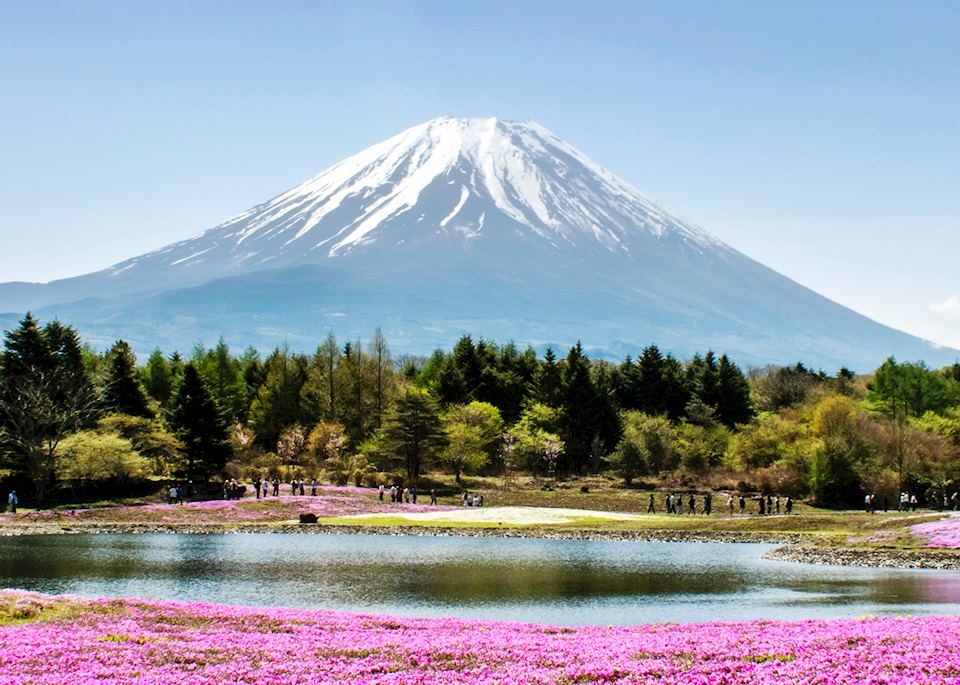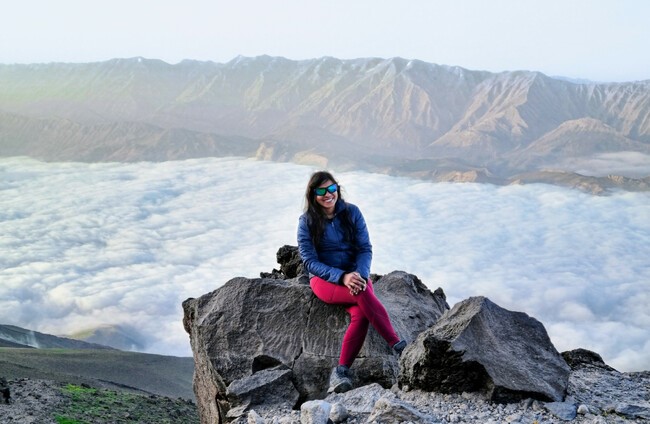Now many young people are starting mountain climbing. But before attempting to climb, there is a lot of preparation that needs to be done for beginner climbers.
It is needed for the safety and security of climbers while exploring nature.
This activity can indeed provide a relaxing effect and relieve stress so that it can make us happier.
So that the positive impact is not disturbed by the risks involved when climbing, note and note the various preparations required before this climb, yes.
Preparation before climbing the mountain
-
Determine the location and level of climbing
Remember, not all hiking trails are created equal. If this is your first chance to climb a mountain, do not be greedy and immediately experiment with difficult locations to reach with a high level of difficulty.
Choose a location with a climbing path that suits your abilities.
Get to know the climbing route from the location of your choice by asking or reading climbing reviews. Also consider the time it takes to climb.
For practice, you can choose a location close to your area of residence and can be reached in just a few hours. So you do not need to bring a tent, change of clothes, or any other burden.
-
Alone or bring a friend?
Will you go solo hiking or with friends and groups? For most people, climbing a mountain alone is an escape for inner peace.
However, climbing alone is also more dangerous if something happens when you are lazy and out of the way. To be safer, invite a few friends to hike together.
-
Check location and weather
It is important to know what the weather is like at the climbing site so you can prepare and change plans if needed.
You can check the weather at the location through the weather forecast or ask the climbing post guard or supervisor at the location.
Check to see if there will be heavy fog, heavy rain, especially thunderstorms, or even eruption alert because some mountains in Indonesia are still active volcanoes.
Such considerations are needed, whether the climb needs to be extended or delayed and wait for better weather.
The risk of bad weather during the climb can be fatal starting from getting lost on the trip or hypothermia, so it is best not to climb and come back another time.
-
Tell your climbing schedule to a parent or relative
Tell friends and family at home about your travel schedule. Information on when you leave, how long, who your friends are on the hike, including locations should be known by at least one family member.
Take some time before departure to explain the details of your travel plans. This is important in anticipation if something might happen on the way.
-
Prepare your physique from afar
Mountain climbing requires great physicality. This is because the body can burn energy that does not play a big role during the climb for about 8 hours in extreme areas.
In addition, this sport also holds various health risks that you must be aware of, ranging from hypothermia, mountain sickness, to pulmonary edema.
All of these risks can happen to anyone, both beginners and beginners. Because when you rise to a height of more than 2 thousand meters above sea level, your body must be able to adapt to the declining amount of oxygen.
To ensure your physical fitness ahead of the day of the climb, you need to build balance, flexibility, and strength in your legs and back muscles to be able to cross the climbing path. Exercise can also help you to strengthen your back and shoulders to carry a mountain backpack that weighs up to 18 kilograms.
-
Observe food intake before climbing a mountain
If you are going to climb a mountain with a tiring route, a breakfast of chicken porridge alone will certainly not be enough to give you the energy needed to climb later. What you eat and drink the day or 2 days before the climb can be the slightest difference between success and failure. Food intake plays a huge role in providing the energy you need during the climb, as well as preventing possible injuries.
Registered dietitian Kate Scarlata, reported from Boston Magazine says the ideal mountain preparation food should be high in carbohydrates and protein.
For example porridge with a mixture of greek yogurt or boiled egg toppings, or a serving of warm white rice with meat dishes of your choice as well as vegetables. This is a smart breakfast option before hiking.
If you are still hungry, double the portion (of the same type of food you ate earlier). Banana or orange snacks before and during the climb are also highly recommended to replace the potassium levels that are lost when you sweat.
Drink at least 2 liters of fluids (water, juice, milk, sports drinks) the day before your climb. Drink 1 liter of white water or sports drink before starting the climb.
Start drinking as soon as you get out of bed that day.
-
Bring only the necessary items
No matter the location, time, or difficulty level of the climb, you should always carry these items with you on your trip:
Maps and compass or GPS
Water filter
Sunscreen and anti-insect lotion
Versatile knife
Nylon cable
Flashlight (handheld flashlight or head flashlight) plus backup battery
Sunglasses
Match / fire extinguisher
Meal recommendations – Consists of breakfast, lunch, and dinner per day climbing; snacks on the sidelines water supply, and cooking utensils and cutlery (plates, bowls, glasses, spoons) if hiking for more than 1 day
Suggested clothing – Consists of base layer (top and bottom), middle layer (warm insulation), and outer layer (jacket / padding climb); raincoat; Extra socks; Hats and gloves; small towels; Avoid cotton clothing, as trapping sweat stays close to your skin
Shelter (tent / sleeping bag) – If hiking more than one day
Proper footwear for hiking – For short hikes, regular sandals or sneakers are legal. But for longer hiking, it is recommended to wear special hiking boots that offer more support.
Self-identity; a copy of the travel itinerary; enough cash
2-way mobile phone or radio
It’s a good idea to consult your mountaineering preparation, especially for beginners, with friends who are used to climbing, yes.
https://taymazadventure.com/
http://discoverpersialand.com/






